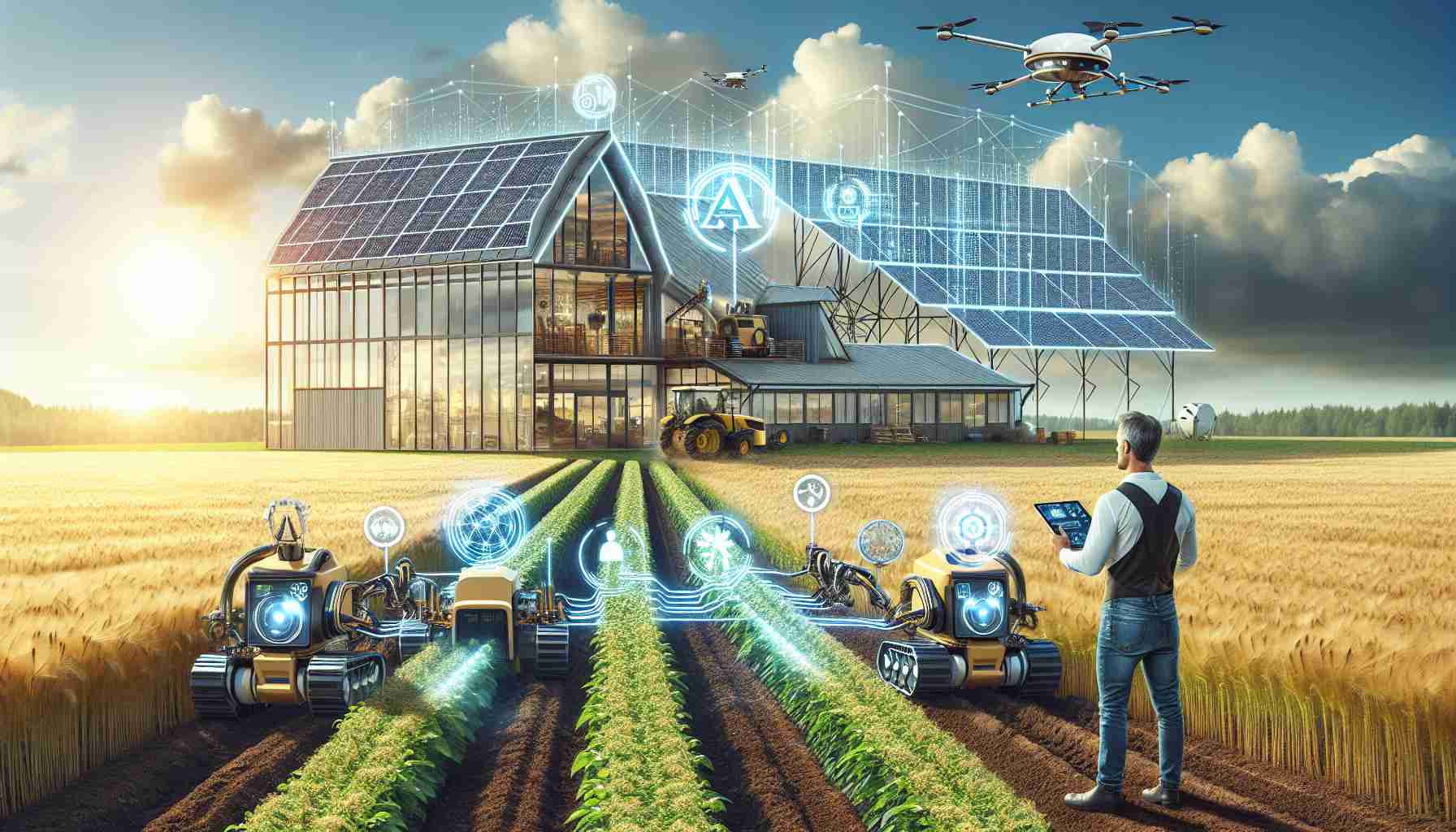Farmers to Embrace AI for Enhanced Agricultural Practices
Advancements in technology bring a transformative approach to the agricultural sector, with artificial intelligence (AI) poised to overhaul traditional farming methods. The integration of AI and satellite imaging systems is set to become more prevalent, aimed at driving innovation in agriculture and creating a resilient, adaptable, and progressive industry.
Innovative AI Applications to Boost Agricultural Production
The emphasis on increasing the use of AI will incentivize modern machinery adoption, widespread shared machine usage, and contribute to production planning enhancement. Such AI applications are on the drawing board to accelerate technological endeavors in production planning and implementation. These applications will take advantage of AI and geographic imaging systems, setting the stage for significant gains in efficiency and productivity.
Smart Farming Techniques to Surge in Agriculture Sector
AI will contribute to increased crop yields and better control of price fluctuations of vegetable products. Alongside AI, agricultural advancements include product verification, yield predictions, geographic information systems, and algorithms. The objective is to bring smart farming to the forefront of the agricultural practices.
AI Implements Vigilance in Forest Regions
The Ministries are ramping up efforts to apply AI in forest areas too. With the development of intelligent towers operated by AI, constant monitoring is implemented. These towers tirelessly scan the area 24/7, instantly reporting detected thermal discrepancies to the central hub. Furthermore, an effective decision-support system for forest fire intervention is managed through AI. This system swiftly processes information about the landscape of forests nationwide, team locations, and meteorological data, providing crucial guidance on the allocation of resources and personnel during emergencies.
Key Challenges and Controversies in AI and Agriculture
The integration of AI into agriculture is not without challenges or controversies. Some of the most pressing issues include:
– Data Privacy and Ownership: Farmers and agronomists are concerned about who owns the data collected on their farms and how it is used.
– Technological Disparities: There is a digital divide between developed and developing countries, as well as among large and small-scale farmers within the same country.
– Dependence on Technology: Over-reliance on AI could potentially reduce traditional farming skills and knowledge.
– Job Displacement: AI applications may replace some jobs in the sector, leading to concerns about the social impact on farming communities.
– Environmental Impact: There are debates over AI’s role in promoting intensive farming practices, which can be harmful to the environment.
Advantages of Implementing AI in Agriculture
– Increased Efficiency: AI helps in optimizing farming tasks, leading to more efficient use of resources.
– Enhanced Crop Yields: Precision agriculture can lead to higher productivity and crop yields.
– Reduced Waste: AI can minimize overuse of water, pesticides, and fertilizers, leading to less waste.
– Improved Monitoring: Constant surveillance of crops and forest areas can help in early detection of diseases, pests, and fires.
– Decision Support: AI can assist in making informed decisions by analyzing a multitude of variables quickly.
Disadvantages and Risks of AI in Agriculture
– High Initial Costs: The initial investment for AI technology and equipment can be substantial.
– Complexity: Adoption of AI requires technical know-how, which may be lacking in some farm operations.
– Lack of Standardization: There is a need for standards and protocols, which currently may not be uniformly adopted across the industry.
– Risk of Dependency: There is a potential risk of becoming too dependent on AI systems, which can be problematic if they fail.
– Energy Consumption: AI systems may require significant energy resources, which could increase the carbon footprint of the farm.
Aside from controversies and challenges, the proliferation of AI in agriculture opens a new chapter filled with opportunities for innovation and improvement. As AI becomes more integrated into agriculture, it is important that policymakers and industry players address concerns around regulations, ethics, and social impact to ensure that the benefits of AI can be realized without significant adverse consequences.
For further information regarding AI developments and agricultural innovation, you can visit reputable science and technology news domains like Nature or Science for research-based updates. For industry-specific insights and reports, websites like Agriculture.com or Farmers Weekly might be useful. Please always ensure that you validate the URLs before visiting these sites.

